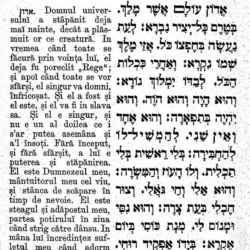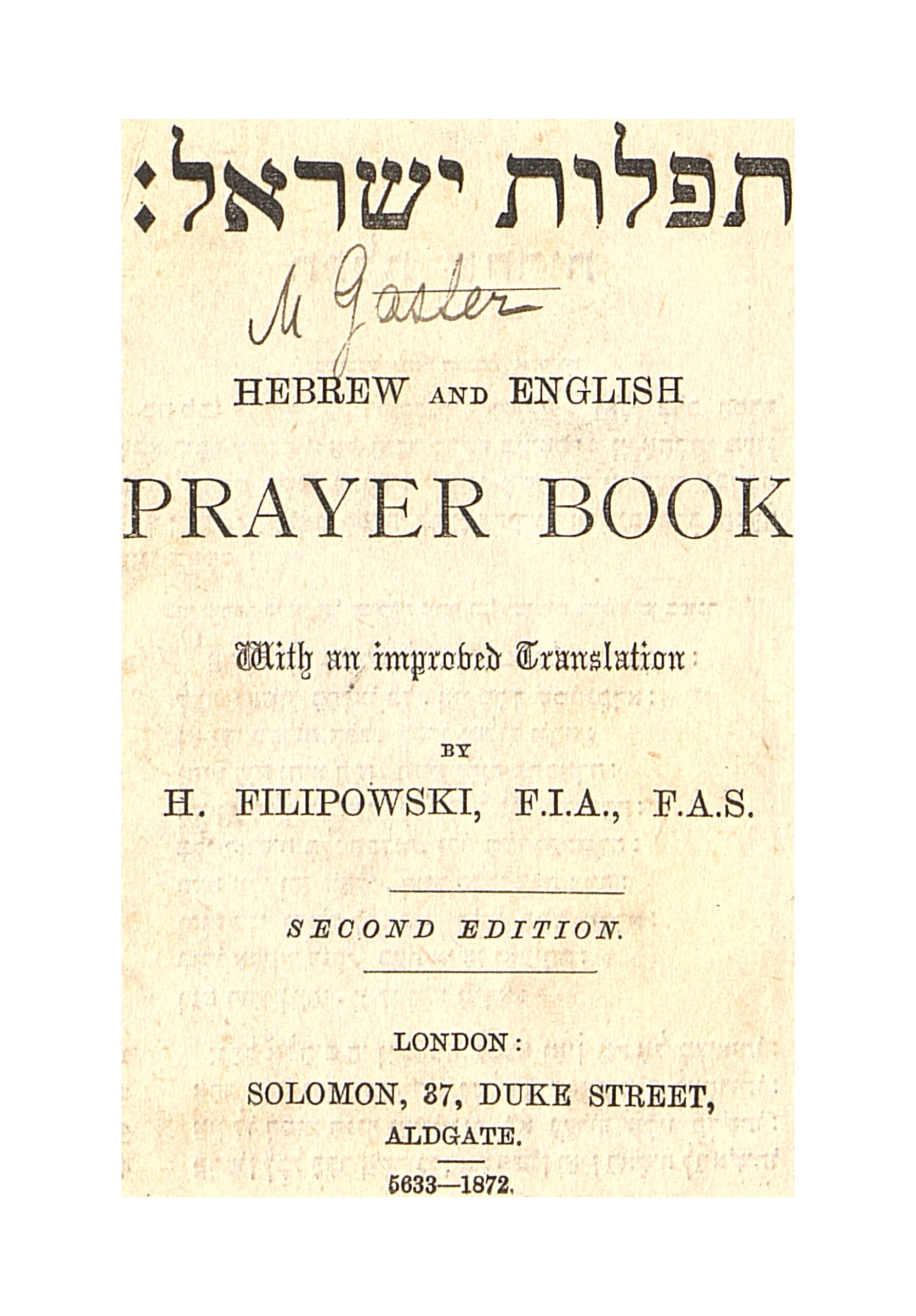סדור תפלת ישראל Carte de Rugăcĭunĭ Pentru Israeliţĭ is a bilingual Hebrew-Romanian prayerbook translated by Dr. Moses Gaster in 1883 following the liturgical custom of Ashkenaz. Moses Gaster was only 26 years old when he completed this work and very much at the beginning of his prolific career as a scholar and rabbi. Later on, after emigrating to Britain, he would return to the siddur and complete a full translation of the maḥzorim in the sefaradi nusaḥ for the S&P community.

This work is in the Public Domain due to its having been published more than 95 years ago.
This digital edition was derived from page images scanned by Google Books from a volume held in the collection of the National Library of Israel.
Scanning this work (making digital images of each page) is the first step in a more comprehensive project of transcribing each prayer and associating it with its translation. You are invited to participate in this collaborative transcription effort.
Below is Moses Gaster’s foreword below in Romanian, for which I have prepared an English translation with the aid of machine translations. (Please feel invited to correct it!) –Aharon Varady
Source (Romanian) Translation (English)

“📖 סדור תפלת ישראל (אשכנז) | Siddur Tefilat Yisrael: Carte de Rugăcĭunĭ Pentru Israeliţĭ (Romanian translation by Rabbi Dr. Moses Gaster, 1883)” is shared through the Open Siddur Project with a Creative Commons Attribution-ShareAlike 4.0 International copyleft license.










Leave a Reply